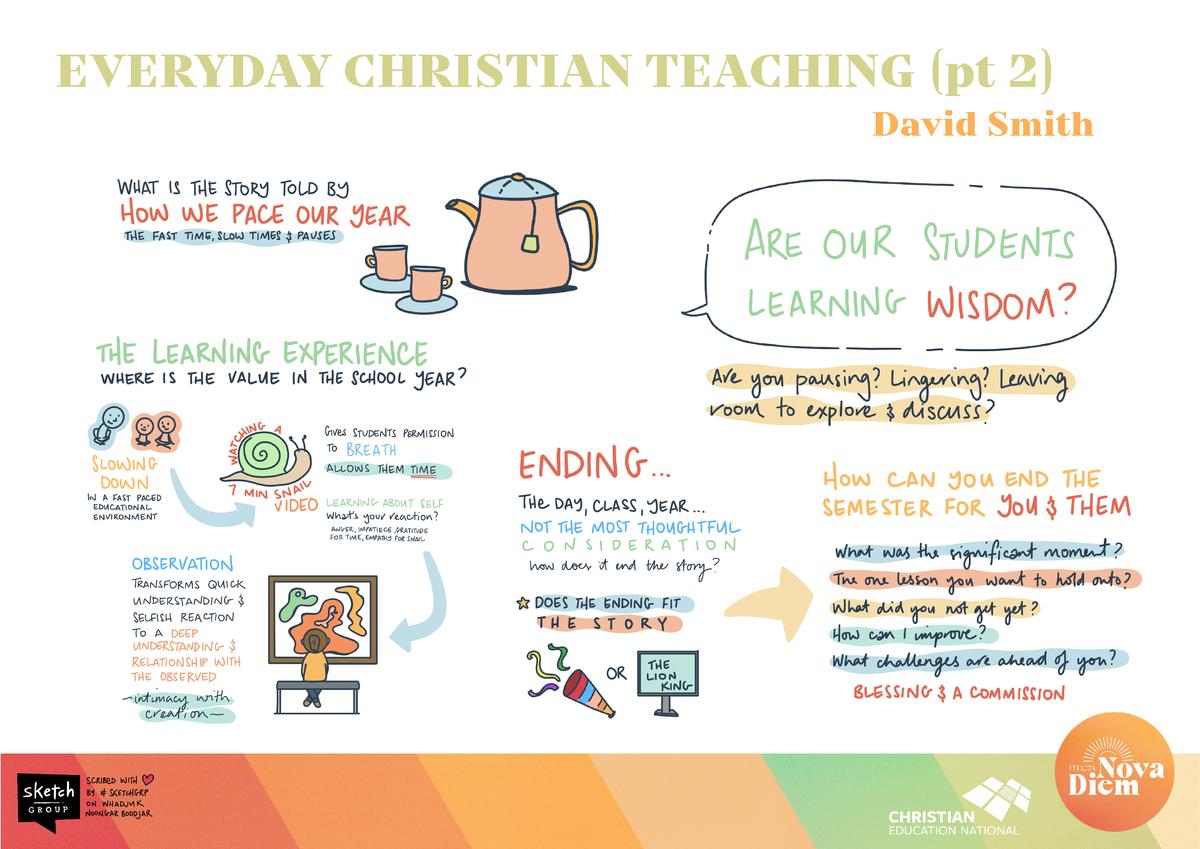From the Principal

Over previous Heralds I highlighted some of the core messages of the CEN conference that LCS staff had the privilege of attending in the July break.
In this Herald I will be sharing notes from David Smith's Everyday Christian Teaching - Part 2 message, and this will conclude our series.
My hope is that you were encouraged as we all were by the powerful messages, and the potential impact that this will have on our school community and lives.
Stuart Kent, Principal
The Importance of Intentional Endings in Education
In the hustle and bustle of our school days, we often find ourselves reacting to the pressure of time constraints. However, it’s crucial to remember that endings in our classrooms need to be intentional. Just as the closing chapters of a book shape the overall narrative, how we conclude our lessons, units, and even the school year can significantly impact our students' learning experiences.
Why Endings Matter
Endings hold the power to transform the entire story. When we take the time to reflect on how we conclude our teaching, we can shift perspectives and provide students with a more meaningful conclusion to their learning journey. Consider the impact of end-of-unit tests—what message are we sending when we close a unit with an evaluation instead of a reflection? This approach may communicate that learning is merely about grades rather than a deeper understanding of the material.
Celebrating Student Learning
To foster a more enriching learning environment, we must strive to find endings that fit the narrative of student learning. Celebrating student achievements, rather than simply assessing them, allows us to honour the growth they’ve made throughout the unit. This can take many forms, such as presentations, exhibitions, or collaborative projects that showcase their learning in a celebratory manner.
A Different Approach to Closure
In a similar vein to how a church service concludes with a liturgy, a blessing, and a commission, we can rethink how our classes end. Instead of wrapping up with a grade and a quick dismissal, why not finish with a moment of gratitude and encouragement? Imagine ending a unit with a blessing that recognizes students' hard work and a commission that inspires them to apply their knowledge beyond the classroom.
To illustrate this new approach, take a look at the slide attached. It outlines practical ways to implement a more meaningful closure to your lessons.
Student Interpretation of Endings
Finally, we must consider what messages students interpret from how we end our units. Are they feeling valued and acknowledged, or are they left with the notion that their worth is solely tied to their grades? By adopting intentional endings that celebrate their learning journey, we can help students leave the classroom with a sense of accomplishment and a desire to continue their exploration.
Let’s work together to make our endings as impactful as our beginnings, ensuring that every student walks away with not just knowledge, but also a sense of purpose and joy in their learning journey.

